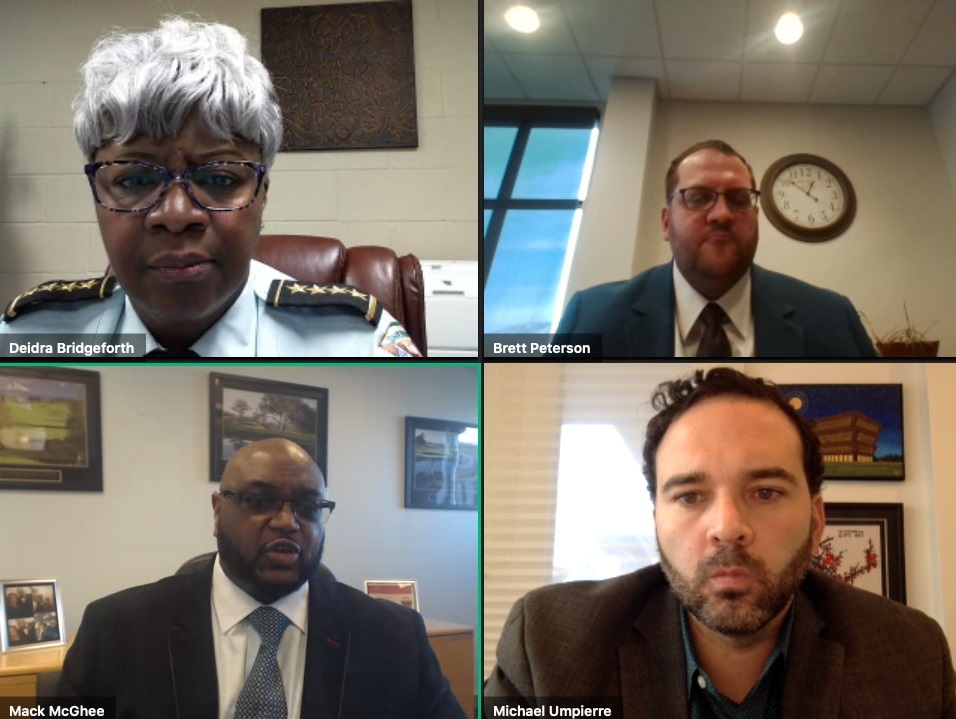At a time when COVID-19 cases continue to rise at correctional facilities across the country, Deidra Bridgeforth considers herself lucky.
Leading the juvenile detention system in Shelby County, Tennessee, which includes the city of Memphis, Bridgeforth seems almost surprised their detention system has been spared from the virus.
 “All of our youth are screened in the sallyport [a secure entry] and given a temperature check,” Bridgeforth said. “And we have not had a youth test positive yet.”
“All of our youth are screened in the sallyport [a secure entry] and given a temperature check,” Bridgeforth said. “And we have not had a youth test positive yet.”
Despite no official cases, Bridgeforth, like other juvenile justice administrators, is increasingly concerned about the use of solitary confinement as a containment method for the virus. At an online event Tuesday hosted by the Center for Juvenile Justice Reform, Bridgeforth made her concerns known.
Particularly worried about the long-term effects of isolation in juvenile detention facilities, administrators like Bridgeforth are working to make quarantine less solitary.
“[Those in quarantine] still have the same programing,” she said after the event. “They have a library, art supplies, and their program director sends them materials. Music, reading materials, art supplies, music therapy, etc.”
Shelby County is by no means the only juvenile detention system looking to reimagine quarantine. Brett Peterson, director of the Utah Division of Juvenile Justice Services, said during the panel they are even providing incarcerated youth with electronic devices like Nintendo Switches.
Unlike Shelby County, he said the Utah juvenile justice system has experienced some COVID-19 outbreaks, but they have managed to control them quickly.
“Currently we only have about six cases statewide,” Peterson said. “Since this thing got started, since last year, we’ve had 60 throughout.”
Much of the success Peterson’s department has had could be due to their extensive COVID testing capacity. Unlike many departments around the country, Peterson’s has obtained 10 rapid testing machines exclusively for their use.
“We probably have around 100 or so [rapid] tests at any given time we can use,” he said.
Despite the necessity of quarantining sick people during a global pandemic to prevent further spread, isolating youth can have damaging psychological effects, according to BJ Casey, a professor of psychology at Yale University.
“During periods of chronic stress, when you feel there’s no hope, and you have no control over a situation, that can have lasting effects.” she said. “Some individuals are going to be more impacted than others.”
For more information on juvenile justice issues and reform trends, go to JJIE Resource Hub
Casey believes that by making changes to the juvenile justice system, we can begin to reduce the overall amount of stress on young people, particularly during a pandemic.
“Something we’ve been seeing in Connecticut is that it’s all about remediation as opposed to punishment,” she said. Administrators should focus more on the emotional needs of youth, she said.
According to those administrators who run youth detention facilities, getting agreement to build a more compassionate model of youth incarceration has been hard.
For Peterson, it only began after he and other administrators took a firm stance, demanding that programs like trauma-informed care become a standard in their department.
Others like Bridgeforth agree that only once administrators and staff became more responsive and compassionate did young people begin reciprocating.
“The children didn’t change, the staff did. They responded in this environment. It didn’t happen overnight. We’re not perfect, we’re positive.”
